Close UP
Organization for Technical Intern Trainee Life support – TITL ~Supporting the Lives of Foreign Technical Intern Trainees Living in Japan to Bring Them a Smile~
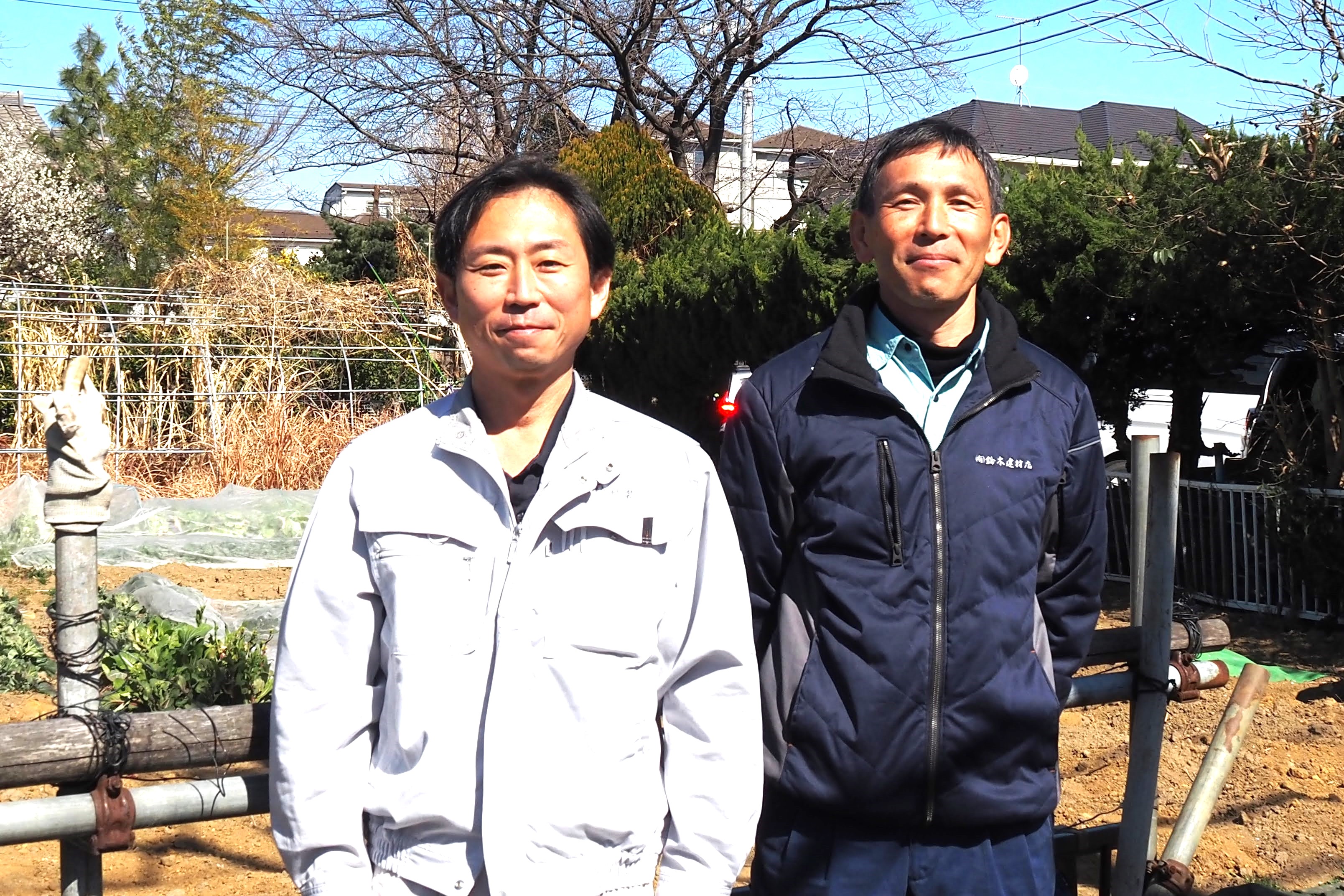
The Organization for Technical Intern Trainee Life Support (hereinafter referred to as TITL), located in Edogawa ward, conducts daily-life support activities to enrich the lives of foreign technical intern trainees in Japan, during their limited period of stay.
These young technical intern trainees are working day and night to acquire skills. However, we also hear that their “life” in Japan is not very pleasant. We interviewed Mr. Naoya Kawate, representative director - and Mr. Norimitsu Suzuki, director - of TITL, an organization that supports the lives of those technical intern trainees.
Learning for the First Time About the Reality of Young Technical Intern Trainees Coming to Japan
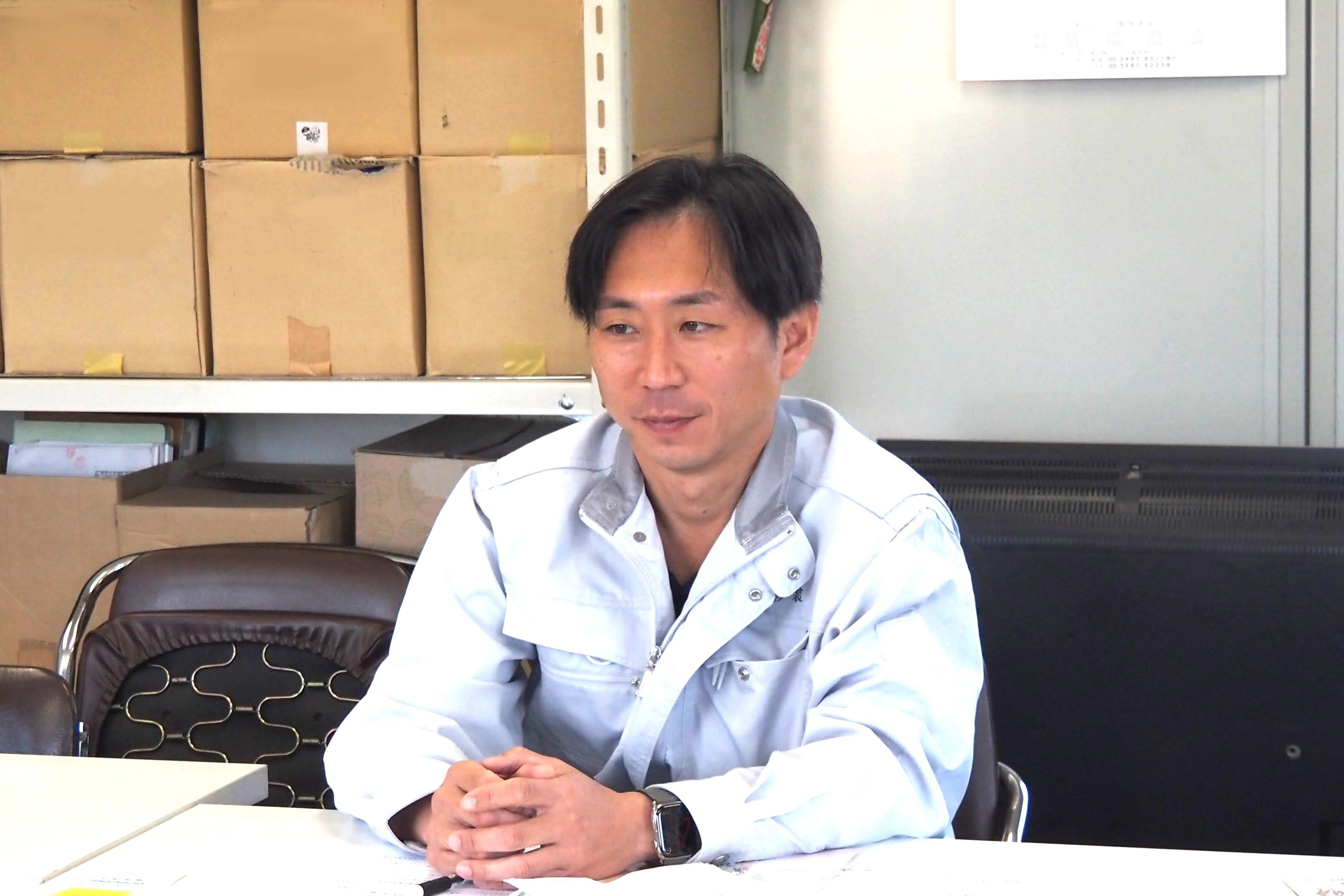
The technical intern training program, introduced in 1993, is a system that allows foreign nationals to stay in Japan, and receive technical internships with remuneration. The number of foreign technical intern trainees staying in Japan was 354,104 at the end of June 2021 (according to the Immigration Services Agency of Japan). A wide range of industries and occupations are now welcoming those intern trainees; including construction industries, which have serious shortage of labor. Mr. Naoya Kawate, who runs a construction-related company, first learned about the technical intern trainees in August 2016, when his company decided to hire its first technical intern trainees.
“Until then, I had not even heard of a program called ‘technical internship’. So, I became interested and did a lot of research.”
While researching on the Internet, Mr. Kawate came across an academic paper by a former intern trainee who had completed technical intern training program.
“According to the paper, more than 90% of technical intern trainees had a good image of Japan before coming to Japan, such as the fact that they could learn advanced skills. However, when they arrived in Japan, they found that they felt lonely and isolated, and that their job was not what they had expected, etc. In the end, a large number of technical intern trainees returned to their home countries with a bad image of Japan. I thought that if they were coming to Japan, I wanted them to make their time here an enjoyable and memorable one.”
Speaking with acquaintances from the same industries and different businesses, as well as friends in the community, Mr. Kawate began to wonder if there were any way to change this current situation. So, Mr. Kawate, Mr. Suzuki, and another Mr. Suzuki, all having graduated from the same university, as well as hailing from the same hometown, began to think about establishing an organization.
Starting with a Japanese Language Class to Solve Communication Problems in the Workplace
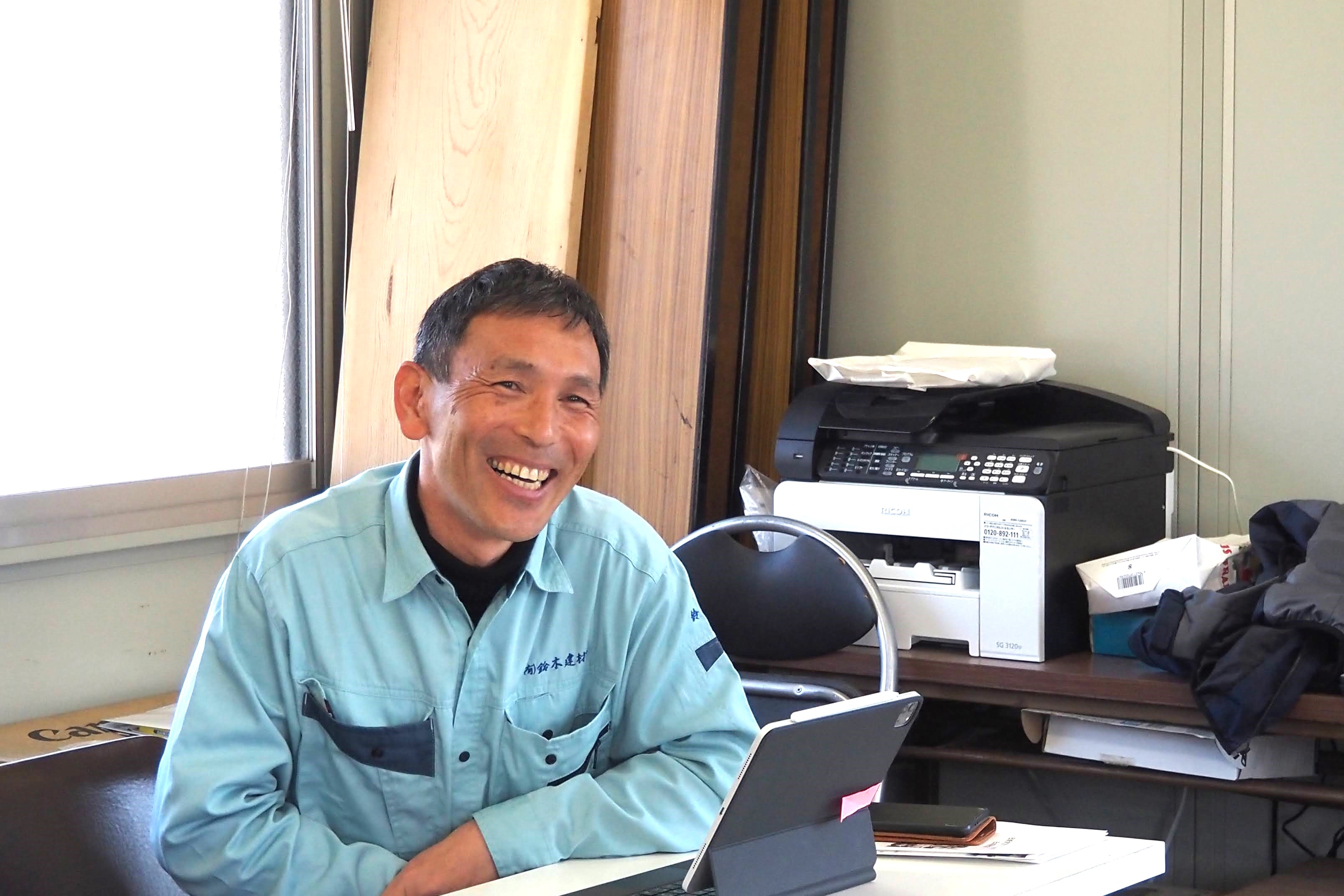
They established TITL on the 18th of December, 2017.
“We founded the organization hoping that we could become a platform for intern trainees to get together, and for us to support them in their daily lives. However, when I saw the intern trainees who came to my company, I instantly thought that the language problem was the major issue. They cannot communicate with Japanese workers because they don't speak the language. Both the Japanese and intern trainees became frustrated and stressed with each other,” says Mr. Kawate.
Although intern trainees have opportunities to study Japanese before and after their arrival in Japan, their level of Japanese varies from person to person. It is said that most intern trainees come to Japan with the N4 to N5 (beginner) level of the Japanese Language Proficiency Test (JLPT), however, the N3 level is required to understand daily communication. Therefore, many intern trainees are anxious about their communication in workplaces and so on. – “Japanese-Language Proficiency Test N1-N5: Summary of Linguistic Competence Required for Each Level”
That is how they started TITL's activities with a Japanese language class.
A Place for Intern Trainees to Meet and Expand Their Lives in Japan
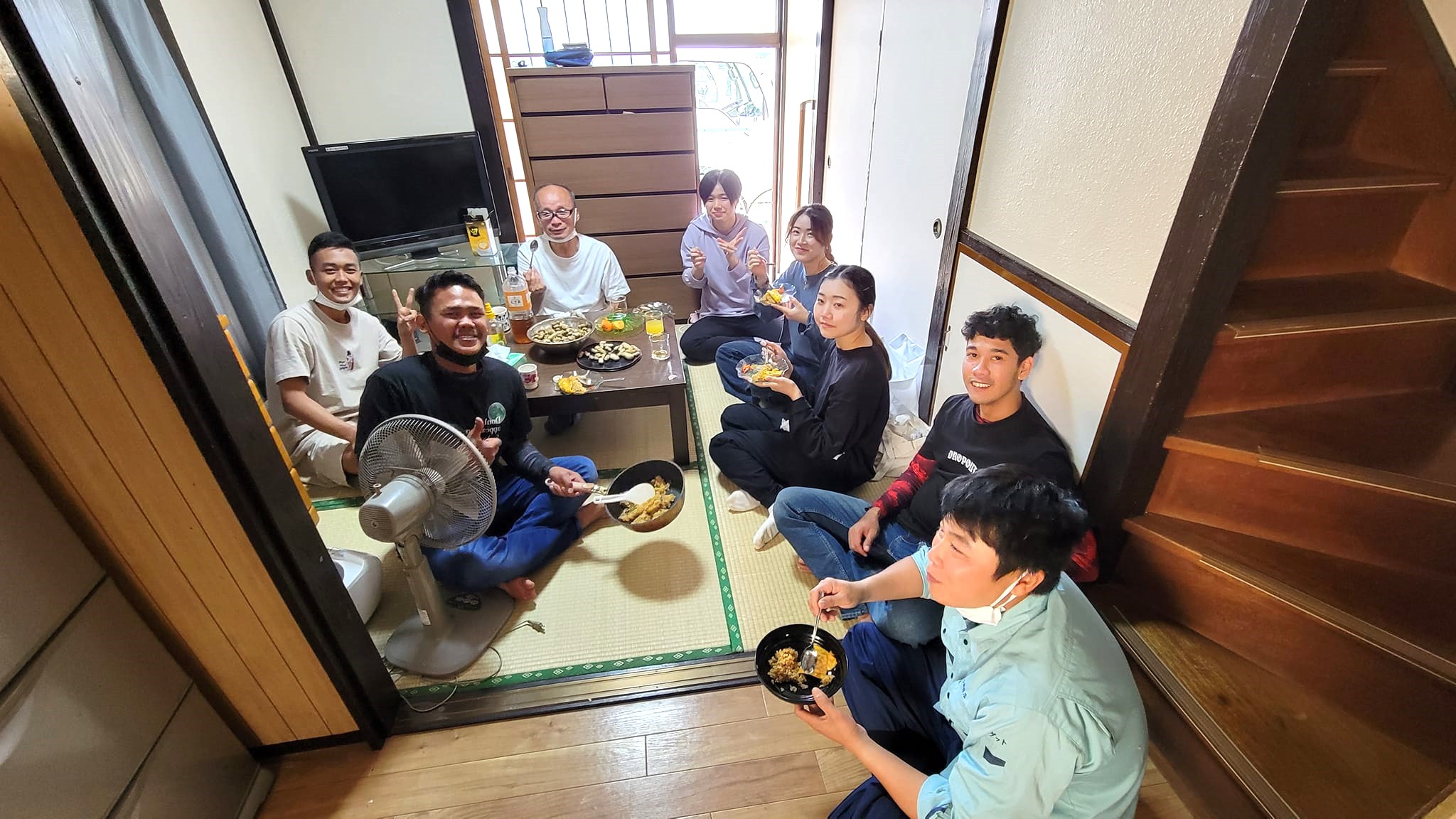
When TITL began offering a Japanese language class, they rented a meeting room for the class at an association that was made up of companies in the construction industry in Edogawa ward twice a month. Then, TITL gathered about 20 to 30 intern trainees who were employed by companies that are members of the association. However, after a year, the situation changed with the COVID-19 pandemic, and the class became an online event. The online platform eliminated the hassle of setting up venues, and the frequency of the event increased. Currently, the class is held daily upon request. Furthermore, through connections among intern trainees, participants from outside Tokyo are said to be participating: such as those in Gifu, Aichi, Ibaraki, and Aomori, as well as former intern trainees joining the class after returning to their home countries.
Intern trainees who just arrived in Japan often have no friends or acquaintances at their training sites, or in their neighborhoods. So, they tend to feel homesick and lonely. However, TITL has become a place for intern trainees to meet each other and make friends through activities, such as a Japanese language class, or getting to know Japanese people in the neighborhood. TITL also provides opportunities to experience Japanese culture through involvement in local festivals and seasonal events.
Intercultural Farm - a Healing Place While Local Festivals and Events Were Interrupted by the COVID-19 Pandemic
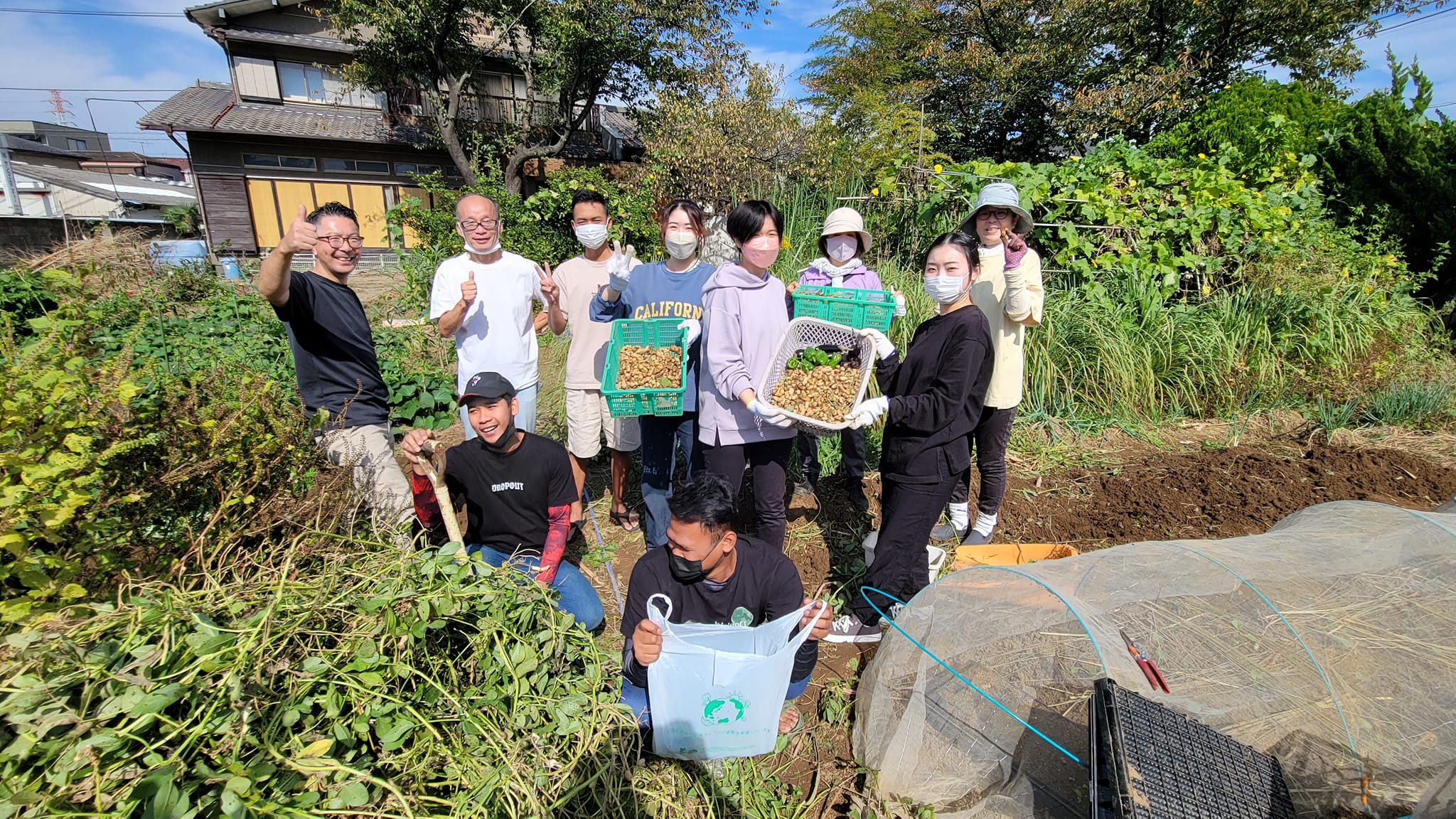
Although the Japanese language class continued online, the COVID-19 pandemic forced the cancellation of many events that intern trainees had enjoyed, such as cherry blossom viewing, mochitsuki (rice cake pounding), and local festivals. So, in April 2021, TITL named the rented farmland “intercultural farm,” and began growing vegetables as well as other crops.
“One of the intern trainees offered to grow plants on a dormitory roof, and that's when I came up with the idea,” says Mr. Suzuki, who rented farmland near his company.
“Many of the intern trainees are from farming villages and are happy to join us. It saves money that would be spent on vegetables, and it also seems to be a peaceful time for them to work with soil. In addition to vegetables, we also made jam from ume (Japanese plum) - harvested on the premises, and planted lemongrass as well. We are also attempting to grow vegetables pesticide-free, with the help of intern trainees’ knowledge.”
Lemongrass - which is used in many dishes from the intern trainees’ homelands, is very expensive to buy in Japan. So, it is very popular among intern trainees. This farmland is managed by all participants, including intern trainees, local volunteers, neighborhood children, and students from Wayo Women’s University , Department of Global Studies; who participate as part of their PBL(Project Based Learning) classes.
“We hope to use the harvested products for cultural exchange events in the future, such as cooking dishes from intern trainees’ home countries,” says Mr. Suzuki.
They are not Just “Labor Power” but “Workmates” Working Together in Japan
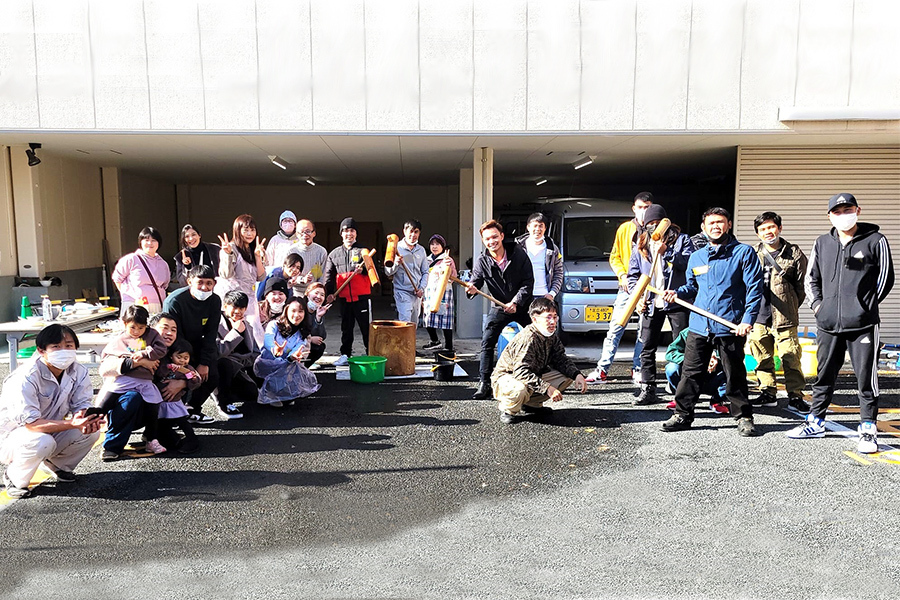
TITL has been involved with more than 100 technical intern trainees from three countries (Vietnam, Myanmar, and Indonesia). TITL is currently exploring further activities.
“It has been three years since our organization was established, and we are just now exploring how to move on. Volunteers are helping us, but the basic operation is carried out mainly by the four or five members who started the organization. Since we (each of us) have separate day jobs, I think it is difficult to find a balance with TITL’s activities,” says Mr. Suzuki.
“Among the technical intern trainees who participated in our Japanese language class, some thanked us, some offered to help us if we need anything, and some still continue to participate even after their internship ended. Although the more we do, the busier we get, we hope to maintain our activities as an organization,” says Mr. Kawate.
TITL obtained a license as a registered support organization for specified skilled workers, and is working as a complimentary employment-placement agency as well; providing support not only for the trainees’ daily lives but also for their working environments.
Technical intern trainees were welcomed into workplaces to help with the shortage of human resources. TITL members are trying to protect intern trainees’ smiling faces, not as just a “labor force,” but as “person,” so that their limited stay in Japan would be more fulfilling.
*This article is based on information available at the time of the interview. For the latest information, please contact the organization directly.
